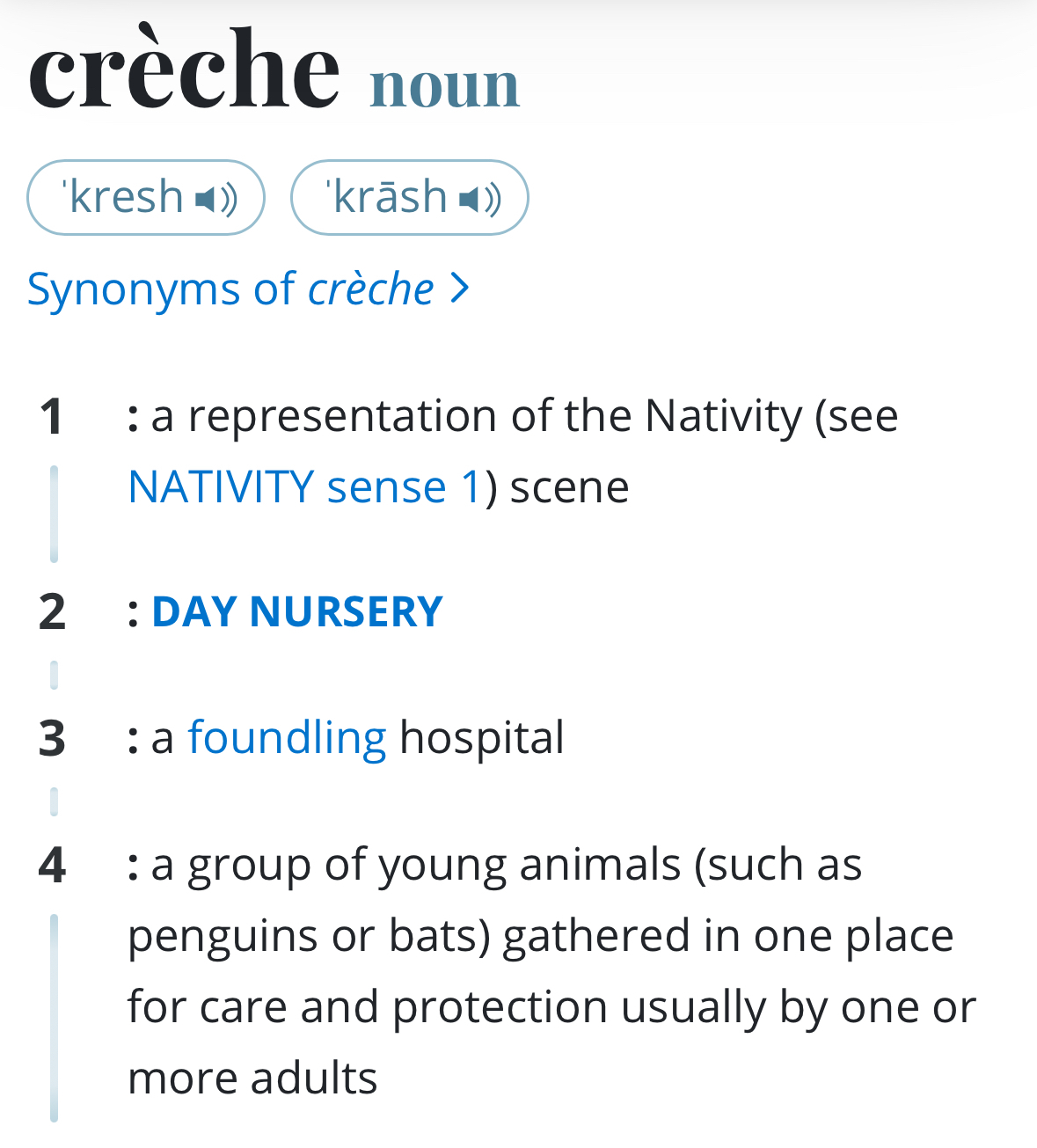If you have a fireplace, used cooking oil burns great.
I hope you get your chimney cleaned often because that flue probably looks bituminous otherwise.
Why? (Honest question, seems like a good PSA type moment)
You know the grease you see on the range hood or ceilings of your kitchen/restaurants above the cooktop/stove?
Same thing would happen in your chimney, but combined with wood fire ash.
But the oil is being burnt?
Is there something from the combustion process that causes issues?
Or are you saying some won’t immediately combust and would go up the chimney?
Would be interesting to see research into this.
Nothing burns cleanly in a fireplace, even gas ones except for ventless ones.
Anything you burn in a fireplace like wood, oil, fat etc. will produce organic compounds that the fire is unable to break down into non-flammable substances because it does not burn hot enough.
A wood fireplace accumulates creosote, which can build until it is capable of igniting and cause a chimney fire. Oil and fat combust very poorly and will coat the flue with material that is easier to ignite than creosote. This ends up being a hazard worse than just wood byproducts because they can ignite and then set the creosote burning.
Complete combustion of hydrocarbons is difficult and usually requires specialized equipment for that hydrocarbon. A fireplace is probably for wood (I assume nobody here is throwing cooking oil into a gas fireplace), but it’s not even good at that. Cooking oil will spatter and polymerize
How’s the smell though?
Like French fries
French Fry grease will coat your lungs. No reason to be subjecting yourself to that smell if not actively consuming french-fries. I’ve spent enough time frying fast-food and donuts that there’s only the two ways that smell isn’t making me puke: actively cooking or eating. Otherwise, I’m not stepping foot in your fry-scented cancer den.
I didn’t notice a smell, all the smoke goes up the chimney obviously.
Also a great firestarter if you like to go camping.
As a 90s kid, I prefer a more twisted firestarter.
So… What are you supposed to do with oil if not pouring it down the drain?
Take it to the recycling center. Even just tossing it into the trash is better than pouring it down the drain. If you toss it in the trash it will just get incinerated. If you pour it down the drain it can clog the sewage system.
“it will just get incinerated”
Look at you, living in a country where they actually do something with trash instead of just accumulating it in a huge field
Going to the dump is so weird. It’s just like, here’s a field…just throw your shit wherever and let’s get outta here.
Better for fighting Climate Change. Unless your incinerators are burning hotter than anything our regulators would ever enforce.
It eventually becomes a huge hill, then we can build a ski slope on it.
I know a place where they did exactly this.
You have incinerators in your area? Everything in my area is landfill, so it will eventually become dirt.
Do plastics go in the landfill too? Or is it somehow separated so that only stuff that decays in years rather than centuries goes there?
The regular trash doesn’t get separated, it’s just dumped. There’s also almost no restrictions on what can go in there, our trash cans are massive, and we have to pay for recycling, so many people just don’t bother (and a second trash can is not much more than a recycling bin).
We do have a recycling service that accepts most plastics (#1-#7), and they claim to recycle it, but they have pretty strict standards (needs to be clean, need to separate caps from bottles/jugs, etc), so I wouldn’t be surprised if most of it just ends up at the landfill anyway. Our area is a “single sort” facility, meaning people just dump everything into one bin and they sort it on their end. This means workers are even more likely to just throw stuff out that isn’t easily identifiable as recyclable.
One big issue is that they don’t accept glass, so to recycle glass, you need to take it somewhere special. I’m pretty obsessive about recycling, so I go out of my way to recycle everything I can (I have a bag of dead batteries in the garage, I make regular trips to recycle glass, etc), but I highly doubt most people bother. In fact, I have a few neighbors with 2 garbage cans and no recycling can.
Wow weird. May I ask where that is? Not recycling glass sounds WILD to me, it’s one of the most common recyclables, even decades ago when plastic recycling was uncommon, glass “dumpsters” where everywhere.
Being forced to separate caps from bottles of very exotic as well, considering the EU just introduced a regulation that forces manufacturers to make caps that stay on the bottle even when opened.
Utah, USA.
We do have a few drop-off bins, but I have to drive to each of them. The going explanation is that, since we do sorting at the facility, it’s not worth exposing workers to broken glass, which is inevitable when mixing all recyclables into one garbage truck. So people have two options: drive to a drop-off location (each a few miles away and not on the way to anything) or just toss it in the trash. So, most people just toss it in the trash.
Being forced to separate caps from bottles of very exotic as well
The plastic in the caps is different from the plastic in the bottles and cannot be recycled together. I guess it’s not worth the time for them to separate at the plant (plastic recycling isn’t profitable as it is), so they put that responsibility onto trash customers (in other words, they want an excuse to just toss bottles w/ caps still on them).
I’m talking about these bottle caps btw. They’re everywhere here (milk jugs, soda, bigger ones for pasta sauce, etc).
I’m guessing more urban areas have better recycling policies since they don’t have massive landfills available for dumping.
Here we have door-to-door pick up now, which replaced dumpsters as a way to encourage recycling: you have limited pick-ups for unsorted trash, the bin has a transponder and a barcode, if you go over the limit you pay extra (albeit very little), while recyclables have unlimited pick-ups; but if they catch you putting normal trash in the recyclables they can fine you.
For door to door we sort as follows:
- bags: plastic, cans and cartons (such as milk)
- paper bin: cardboard and paper, but only if clean (no pizza boxes!)
- compost bin: food leftovers and such, as well as used paper tissues
Then we have dumpsters for glass and dumpsters for gardening refuse, such as wood, leaves, cut grass. Now we have one for cooking oil as well.
For batteries there are usually bins near some stores or at workplaces.
Everything else you have to take to the recycling center, say metal, building materials, furniture… Usually each community has one, when I lived in the country side, my 3000-people village had its own. For furniture in some places you can arrange a curbside pick-up.
All of this is the same for urban and rural areas, though there are small differences between regions as the recycling facilities can be different. For example in some places milk cartons go in the paper bin instead of the plastic one. Of course rural in my area is probably way less rural than most of Utah.
As for caps, yeah, those are now attached to the bottle.. I guess the recycling facility has a way to separate and sort them.
Almost guaranteed to be U.S.A. as it sounds almost identical to my area except we have even fewer options. Here it all goes to the landfill, you can pay for recycling cans and pickup on recycling day but it gets contaminated by people putting trash in the recycling nearly every time so it all just goes to landfill and the local government just doesn’t care
Random question, where do you take old gasoline? Will auto part stores take a jug of old motor oil and gasoline that’s been mixed? I guess I should probably just call and ask a local store after I’m done shitting on company time.
Where I live, it goes to the dump, they have a space dedicated to hazardous liquids/containers. However, you have to leave the whole container there, there’s no spot to dump it
Same.
For separated motor oil (e.g. oil changes), it can go to my local auto parts store, but gasoline and most other car fluids (e.g. coolant, transmission fluid, etc) goes to the dump as hazardous waste. My area does an event once or twice each year to collect all of those hazardous materials, so it’s worth checking that out as well, since it can be way more convenient than waiting in a line at the dump.
The landfill stuff doesn’t eventually turn into dirt. They purposefully make sure that it’s wrapped in plastic in such a way that it never decomposes. Landfills are terrible.
They do it to protect the water table from things like battery acid. But a good chunk of it will become dirt, because there’s enough organic matter in mixed trash to decompose. It’ll just take a really long time because of the mix of plastic and whatnot.
WM at least has rules that every load of trash must be in individual bags, and they must be tied. So you’re not getting that mix you’re talking about. Their goal (every landfill) is to make sure that nothing breaks down as it costs more to deal with (like leachate and methane).
Ours doesn’t have those rules, and I and my neighbors put all kinds of crap in there: tree branches, lawn clippings, rocks, disassembled furniture, rotten food. If it fits, it goes in. And our bins are pretty big, so a lot goes in there. The main reasons to bag are to prevent the bin from getting too stinky and to keep stuff from blowing out if the wind flips the lid. AFAICT, there’s no policy about what goes in the bin, other than hazardous materials like batteries (which they plan for because a lot of people toss those in as well).
Drink it.
Take it to your local recycling center, if they have the means to collect it.
Put it on the doorhandles of the neighbours you don’t like
I pour it into the air intake vents of cars that were parked by assholes, but only when I’m out of eggs to crack in there instead.
Truly my bred’ren
I’ve heard you can use it to lubricate outdoor-facing hinges. Might work well for squeaky fence gates
There are ways to make it harden for bin disposal, but if I’m feeling cheeky I just put used oil back in the plastic jug once it’s cooled down and bin that
There are ways to make it harden for bin disposal
That’s the worst pickup line I ever heard.
My wife has responded to lines nearly that bad, but I’ll report back with any success. 🫡
So?
bzzzz 🔴
I save the plastic grocery store bags and use those. Since they frequently have holes, I double or sometimes triple bag it, depending on how nasty the oil is and how much I’ll regret not taking the time later if it seeps into my garbage bin.
deleted by creator
You can use this to turn it into napalm: Waste Cooking Oil Powder (pack of 6) https://a.co/d/3WIT6Ff
Take it to the recycling center? Here they recently introduced a few oil dumpsters as well
My city actually has us pouring our oil in the compost bins. But in ye olde days, my parents would collect all the oil in the big yogurt containers/milk jugs and then throw it in the trash.
This should only be done for vegetable based oils.
Well yes, I’m not throwing motor oil in my compost am I?
I was referring to seed-based oils.
It should go without saying that motor oil is also inappropriate, yes
I should have specified: my municipality lets us throw any cooking oil out into our compost, and we have special containers in our compost bins specifically for cooking oils. So I’m assuming they get rid of it some way that isn’t actually in the compost.
Ah I thought you meant for composting at home. My Mum only ever let us put vegetable oil in the compost, and even then only small amounts.
If small amounts of oil that hardens when at room temp, like bacon fat. Throw it in a tin can to cool, garbage when the can fills. Oil that doesn’t harden, personally I put a bunch of dish soap into the oily pan to absorb the oil and wash it down the sink. Not sure if the dish soap does enough but seems safe to me.
If its a large amount, like for deep frying. Local recycling might take it. I know curbside pickup will take used motor oil for me, so I imagine they’d take fryer oil too.
absorb the oil
That’s not how that works. You’re wrecking your pipes.
I don’t do it with lots of oil. I mentioned putting bacon fat in a tin can, so we’re talking less than you’d get cooking bacon. See my other reply about semantics of absorb. For small amounts, the oil will emulsify with the soap. Which then can be rinsed away with water. This is how it makes your dishes clean, I’m sure it works the same down the drain.
I’m not sure why you’re getting so many downvotes, your system seems reasonable to me!
Everyone else is upset about absorbing the oil. I’m way more upset that you’re throwing out perfectly good bacon grease that can be used in any number of dishes.
That stuff is like gold. Best thing for tortillas
Tortillas are the number one thing! But if you don’t need new tortillas (I can’t imagine why but some folks don’t have tortillas with nearly every meal, or so I’ve heard) it’s also great for sauteing pretty much anything.
put a bunch of dish soap into the oily pan to absorb the oil
all science people are in pain right now
We’re not in science class.
https://sciencing.com/adding-soap-oil-water-7408600.html
soap molecules can break the oil molecules into smaller ones and allow the water molecules attached to them to surround the smaller oil fragments, creating an emulsion.
Is close enough in plain english to absorb the oil.
No, it’s not.
Absorption /= emulsification. Nor does it equal adsorption.
They’re different, and have different properties.
An emulsification can be broken by agitation or introduction of another substance.
Soap and water do not absorb oil.
deleted by creator
How dare you call mean science-person! I’m a proud moron and can feel the pain!
- bacon fat isn’t oil, it’s fat
- keep the bacon fat for cooking later, it’s amazing - just cover the tin and stick in in the fridge, it keeps really well
- if it’s a little bit of oil, first wipe with a paper towel, then wash with soap
- if it’s a lot of oil, I double-bag w/ plastic grocery bags and throw in the garbage; it’ll break down at the landfill
I wish our recycling took oil, but I’m not convinced they even recycle the things they do take. It’s definitely worth checking though.
What on earth are you all cooking to have so much oil left over that you can pour it into anything?
For me it’s mostly the deep fryer. When I change the oil it takes about 4 1/2 liters to refill.
That makes sense, I didn’t imagine that many people bother deep frying at home, but I guess I’m wrong :D
But in this case people are describing adding a little oil to a bottle at a time where with deep frying you could fill a bottle every time I think.
Here in Belgium nearly every household has a friteuse to make fries.
Wow, I just bake them, I’m sure it’s not as good though.
Blasphemy!
My parents could keep that going for a good long time by filtering it through a few layers of kitchen paper, it got rid of a lot of the burnt stuff, came out quite clear each time.
Don’t they warn against reusing too much because it breaks down into carcinogens?
Probably, but don’t most things these days go out of their way to kill us anyway? 😅
I use paper coffee filters in a metal strainer.
Takes a while, but the oil comes out clear and back to its original colour and flavour after 2 passes.
I just got a deep fryer literally two days ago how often should I change the oil?
They say around around 10 uses or a max of three months, depending on how often you use it and what you’re frying.
For me personally I tend to stretch it a bit further… the main thing is that it isn’t rancid or starting to get too dark.
Sweet thanks!
Most importantly, old oil can have a lower smoke point than is safe. Definitely replace your oil if anything starts to taste burnt.
Drain it through a filter and refrigerate it if you aren’t using it constantly. It’ll go rancid pretty quick.
I don’t call it oil since it’s solid at room temperature, but if you fry meat you’ll liberate fat (dripping)
Meat! I was forgetting about meat…
Have you every heard of the method of cooking called frying?
Sure, but not usually with enough oil to pour out of the pan after cooking.
That depends on the dish - a Wiener Schnitzel for example should be able to move freely in the oil (because it should be kept moving while frying), or the breading will be pretty underwhelming. Same goes for most stuff with breading. I always try to be very conservative in my cooking oil usage, but in those cases it’s just not an option.
Ooh that makes sense, and I want schnitzel now.
Do you make potato fries in a pan?
A lot of people do, actually. Seasoning them right for them to come out more “french fry” than “dried potato” is more involved than a lot of people might like, but I personally don’t do it because I’m being picky about the flavor. I don’t own a deep-frier and salted-dried-potatoes are good enough with a lot of entrees.
Yeah, like what the fuck. People here really think that you can’t fry with just enough oil.
Well, not normally, but for example crispy breaded anything should be dunked in oil at least half way.
I did that once, I was staying at a family as an exchange student and immediately forced to help with chores. Now, they ran a large creche from that house so there were a lot of different chores and being on dishes could mean slaving away in the kitchen for well over an hour.
Anyway, I didn’t know shit about how to properly dispose of oil and in the first or second week poured a large pan of oil down the drain. It ended up ruining some stuff and they had a hefty repair bill. I may be cynical, but I never gave a damn about it as they were basically using me as free labor anyway. Helping with household chores = ok. Helping clean up the gigantic daily mess of those shitty kids in your shitty creche = not ok
creche
noun
Alternative form of crèche.JK,

was it penguins or bats?
Isn’t a crèche that thing Lae’zel kept yapping on about in Baldur’s Gate?
Yes because githyanki are egg laying bat faced people
…wow…how did I not make that connection.
Proof that my brain is smoother than that Githyanki egg I accidentally destroyed.
I gave mine to the friendly lady out front. I’m sure it turned out well
It’s ok! The writers could have picked something irrelevant, you just got unlucky.
Yes, you go there and steal an egg
You’re looking at the wrong definition. It was very clearly a re-enactment of the birth and incarnation of our Lord through our Lady
I’ve got this result from google

deleted by creator
The foundling hospital one?
Ken M vibes
We had a grease can under the sink when I wasgrowing up. My fiancee and I use an old jar. I can’t believe people didn’t know better. They probably think it’s fine to dump car fluids in the storm drain too. Idiots.
Plenty of auto shops in my area will take car oils free of charge. Same with the tip, bottle it up and drop it off on the next tip run.
The shop I worked in, and I assume most other shops in a cold climate, had a waste oil furnace. We’d save oil all summer, and it would keep the shop warm all winter.
I keep a container for used cooking oil along with old motor oil. Whenever it starts getting full, I take it to the local auto parts store for recycling.Do not take cooking oil to an Advanced Auto Parts for recycling. They do not accept that. If you’d like other options, a quick internet search will let you know what you can doodoo brown 🕺
Mixed? Motor oil should be recycled at the auto parts store, but different people people used vegetable oil. Worse case, you could throw out the veg oil. It will biodegrade in the landfill better then most of the stuff that ends up there
Oh shoot. I did not know that. I just called to make sure, and they confirmed that they do not take cooking oil of any kind.
Thanks for letting me know! 🙂👍
Idc if this is dumb, I pour it in a bucket and when it’s full I dig a hole in the back yard and pour the oil in there and bury it. I do this 1-2 times a year.
You’re begging the US Army to liberate your yard.
Depends on the oil but cooking oil is organic material so it shouldn’t be an issue.
It would get pretty stinky.
The moles must hate me
Honestly not the worst idea now I think about it. I have been using the paper towel soak method, but this could actually be less wasteful and easier on the organic composter. Thanks for the tip!
Edit: Ok so I dug into this a bit more (no pun intended), and seems its not the best idea due to the oil potentially seeping into groundwater.
I have a small bucket filled with sawdust that I use to store used cooking oil. Bucket stays in the garage as it’ll eventually go rancid. When it does, it gets thrown into the trash. The resulting mess is still greasy, but not runny. The key here is that soaking it this way limits the mess that can happen if it’s knocked over; sawdust is what you use to clean an oil spill anyway.
Wood-based cat litter would also work for this. It’s just compressed sawdust pellets1.
Edit: I have not looked into donating it as biodiesel. That would probably be a somewhat more green option.
1 - very likely made in the same fashion as pellet stove fuel, so that might work too.
If you have a metal bowl that you no longer need, you can put a roll of toilet paper in there and then douse the whole thing in cooling oil.
Once ignited you will have a stinky lamp, so I would only recommend doing this outside.
I just drink it.
this kindof, but more serious.
Unless we’re talking deep frying, the cooking fat makes for a perfect base for a sauce. With some flour and some stock you have the beginnings of something beautiful, such a waste just throwing it away.
I’ll usually wipe the oil with some paper so I can throw it on the trash. Many moons ago, my family used to collect the oil to make soap at home. Last time I recall seeing that was some 30-ish years ago.
What a waste of perfectly good lube.
Use paper towels to soak it up if it’s a small amount.
Coming at this from more of a common sense angle, I was always told oil doesn’t go down the sink. For most people, it ends up in the normal rubbish.
Putting oil in the normal rubbish seems like it would have basically no issues at all. I think it would either be incinerated or end up in a landfill. If the energy from burning rubbish is being harvested (it might not be) then I would think the oil would help and that could be a useful way to recycle it.
If it ends up in a landfill, I don’t see any problem with a bit of oil being buried with other junk. A lot of people seem to be saying they would bury it anyway.
The only real concern would be if you have a lot of oil and you’re worried about your bin leaking or something. If you put most oil immediately into the bin then this shouldn’t really be an issue.
Of course if you just have a few little drops of oil in with a bunch of water then you would probably pour that in the sink anyway and it would most likely be fine.
Collecting stuff in a bucket, making soap or using it for something else seems like a lot of hassle to mitigate quite minor concerns. Most people don’t have a serious use for a bucket of used cooking oil.
Someone please correct me if I’m wrong about any of this.




















